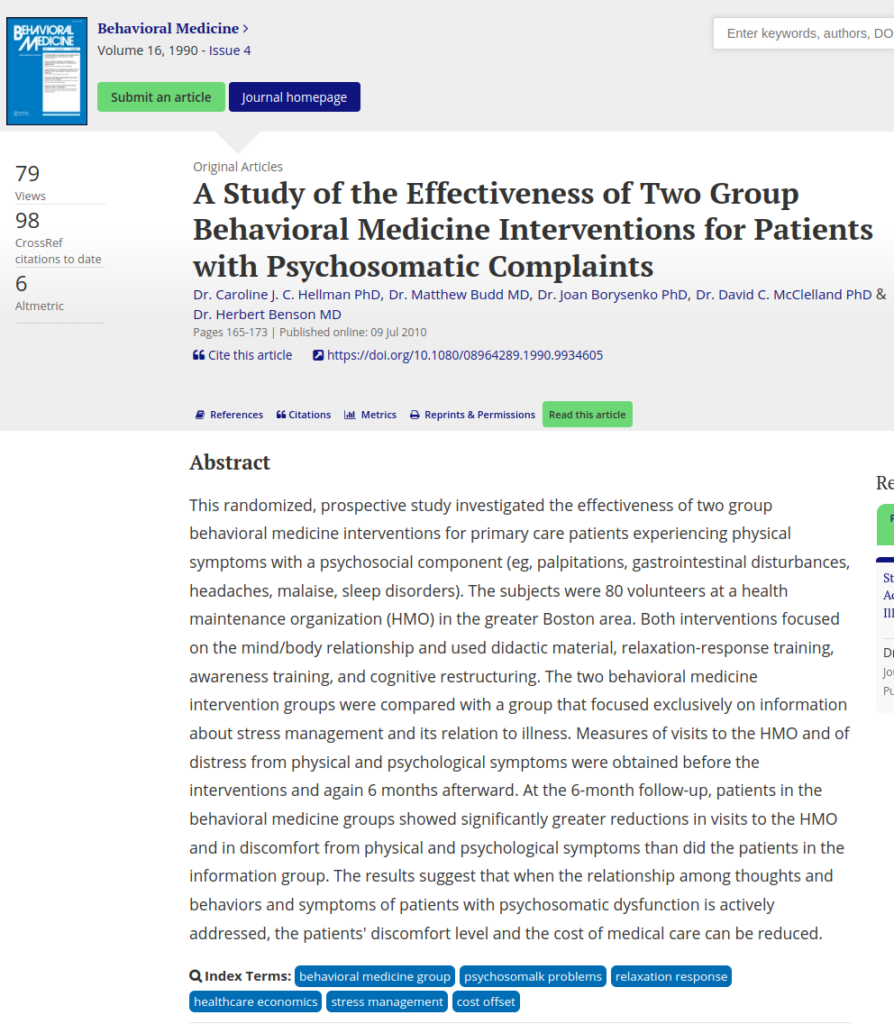This randomized, prospective study investigated the effectiveness of two group behavioral medicine interventions for primary care patients experiencing physical symptoms with a psychosocial component (eg, palpitations, gastrointestinal disturbances, headaches, malaise, sleep disorders). The subjects were 80 volunteers at a health maintenance organization (HMO) in the greater Boston area. Both interventions focused on the mind/body relationship and used didactic material, relaxation-response training, awareness training, and cognitive restructuring. The two behavioral medicine intervention groups were compared with a group that focused exclusively on information about stress management and its relation to illness. Measures of visits to the HMO and of distress from physical and psychological symptoms were obtained before the interventions and again 6 months afterward. At the 6-month follow-up, patients in the behavioral medicine groups showed significantly greater reductions in visits to the HMO and in discomfort from physical and psychological symptoms than did the patients in the information group. The results suggest that when the relationship among thoughts and behaviors and symptoms of patients with psychosomatic dysfunction is actively addressed, the patients’ discomfort level and the cost of medical care can be reduced.
A Study of the Effectiveness of Two Group Behavioral Medicine Interventions for Patients with Psychosomatic Complaints
Publication
Behavioral Medicine
Volume 16, 1990 - Issue 4
Abstract
Web and Email Links
Related Listings
Journal
Psychiatry Research: Neuroimaging
Therapeutic interventions that incorporate training in mindfulness meditation have become increasingly popular, but to date, little is known about neural mechanisms associated with these interventions. Mindfulness-Based Stress Reduction (MBSR), one of the most widely used mindfulness training programs, has been reported to produce positive effects on psychological well-being and to ameliorate symptoms of a number of disorders. Here, we report a controlled longitudinal study to investi […]
Journal
Neurobiology of Stress
Journal devoted to the neurobiology of stress
Journal
Psychiatry
In the Western world today, there is a growing interest in nonpharmacological, self-induced, altered states of consciousness because of their alleged benefits of better mental and physical health and improved ability to deal with tension and stress. During the experience of one of these states, individuals claim to have feelings of increased creativity, of infinity, and of immortality; they have an evangelistic sense of mission, and report that mental physical suffering vanish (Dean). […]

